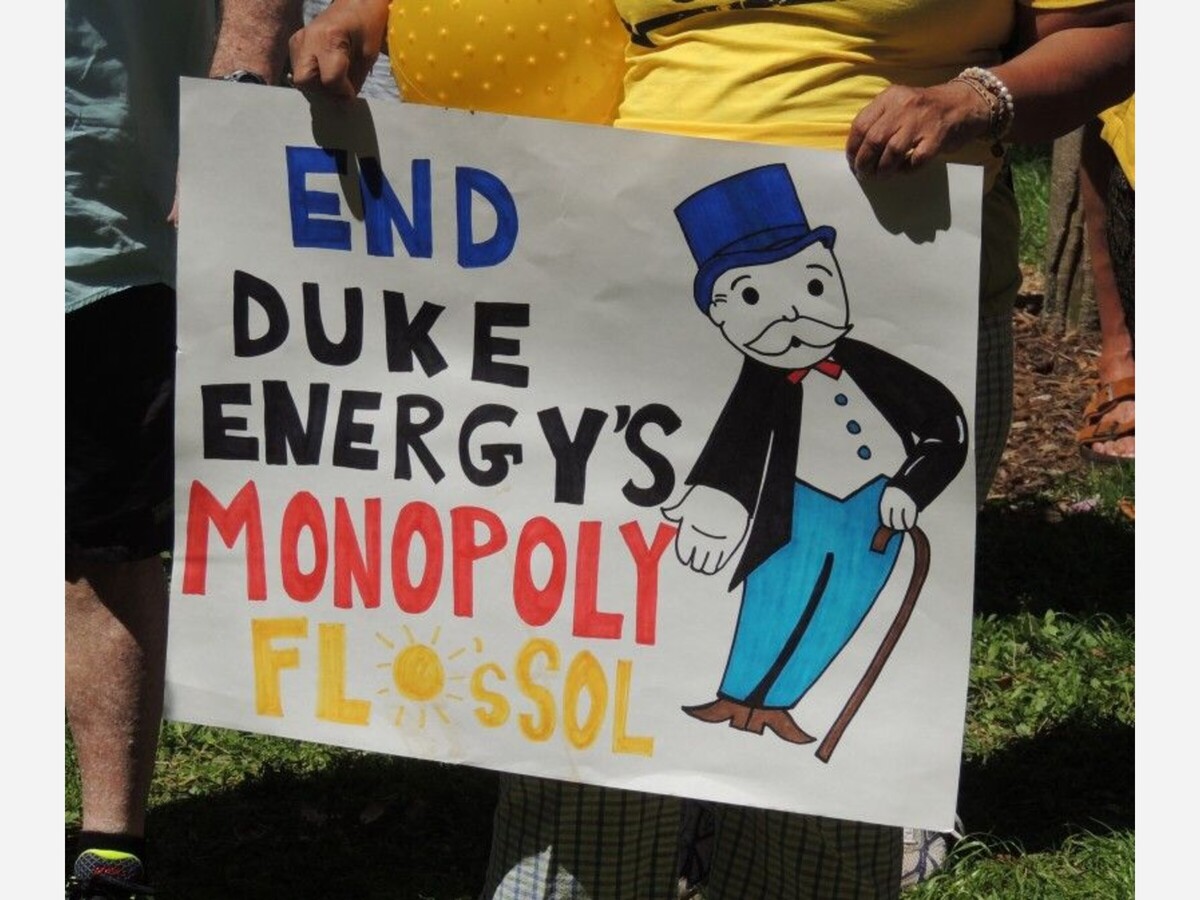Image


Tidings Media Editorial Note : This call to action aims to encourage the Florida PSC to take the necessary steps to investigate and regulate Duke Energy's operations. By doing so, the state can foster a more equitable energy landscape and safeguard consumer rights. The city of Clearwater, Florida is exploring options to terminate their relationship with Duke Energy when their contract for services expires in 2026. At a minimum, competitive services should be introduced across the State to foster a competitive v. captive energy offering to benefit consumers. Duke Energy operates as a monopoly in its regulated states, so that homeowners and businesses can't purchase electricity from any company or person other than Duke Energy.
Duke Energy's dominance in Florida’s utility market is a growing concern that demands immediate attention from the Florida Public Service Commission (PSC). Multiple issues highlight the need for a thorough regulatory investigation into Duke Energy's practices, ranging from financial misconduct to poor customer service and emergency management.
1. Financial Misconduct and Price Gouging
Since 2020, Duke Energy has significantly raised its rates, placing a heavy burden on Florida's consumers. Reports indicate that Duke has engaged in unfair business practices, such as inflating fixed fees that disproportionately affect low-income households. These fixed charges force those who consume less energy, often the most economically vulnerable, to subsidize wealthier, high-consumption users. Additionally, Duke has been criticized for underfunding programs meant to assist low-income customers, further widening the energy affordability gap (EWG) (EWG).
2. Poor Performance in Emergency Management
Duke Energy's track record in handling emergencies is less than stellar. The company's response to recent climate disasters and its failure to efficiently manage power outages have drawn widespread criticism. Communities, particularly those of color and low-income groups, have suffered the most due to Duke’s inadequate emergency planning and response. This has not only led to prolonged power outages but also highlighted Duke's disregard for the needs of its most vulnerable customers (NC WARN).
3. Regulatory Issues and Anti-Competitive Practices
Duke Energy’s monopolistic control over the energy market stifles competition, particularly from renewable energy sources. The company has been accused of obstructing the growth of residential solar power by lobbying against net metering policies and other incentives that would benefit solar customers. This anti-competitive behavior hampers the development of a more sustainable and diversified energy market in Florida (EWG) (Facing South).
4. Customer Service Concerns
Customer service is another area where Duke Energy falls short. Complaints about the company’s service quality, billing issues, and general customer dissatisfaction are rampant. Many consumers report difficulties in resolving issues with Duke, indicating systemic problems within the company’s customer service operations (NC WARN). In prioritizing profits over people, they've proven that they have not properly hardened their power grid, causing preventable consumer disruption while maximizing bills and minimizing service effectiveness.
5. Legal and Ethical Violations
Duke Energy has faced numerous legal challenges and allegations of ethical misconduct. These include charges of unfair pricing, poor transparency in financial dealings, and misuse of regulatory loopholes to maintain its market dominance. The company’s efforts to block independent reviews and analyses further underscore the need for a comprehensive investigation into its practices (NC WARN) (Facing South).
6. Ownership Structure of Duke Energy
Duke Energy, based in Charlotte, North Carolina is a publicly traded company listed on the New York Stock Exchange under the ticker symbol DUK. As a public company, its ownership is distributed among millions of shareholders. The largest shareholders include institutional investors such as mutual funds, pension funds, and other financial entities. Vanguard Group, BlackRock, and State Street Corporation are among the top institutional investors holding significant shares in Duke Energy. This widespread ownership among institutional investors adds a layer of complexity to its governance, as these entities often prioritize financial returns, which can sometimes be at odds with customer and environmental interests (NC WARN) (Facing South).
Duke Energy employs more than 600 lineworkers across Florida who construct, operate and maintain the equipment that delivers electricity to approximately 2 million customers across its 13,000-square-mile territory in Florida.
The evidence against Duke Energy underscores the urgent need for the Florida PSC to step in and conduct a thorough investigation. By addressing these issues, the PSC can help ensure a fairer, more competitive, and more sustainable energy market in Florida. It’s time for state regulators to hold Duke Energy accountable for its monopolistic practices and protect the interests of all Floridians. Tidings Media is calling on the PSC, office of the Governor of the State of Florida, and Florida state representatives to launch an investigation into the billing practices, monopolistic control, and anti-competitive policies of Duke Energy which have proven to be detrimental to consumers and to fair market principles in Florida.
See also : https://www.fox13news.com/news/clearwater-looking-cut-ties-duke-energy